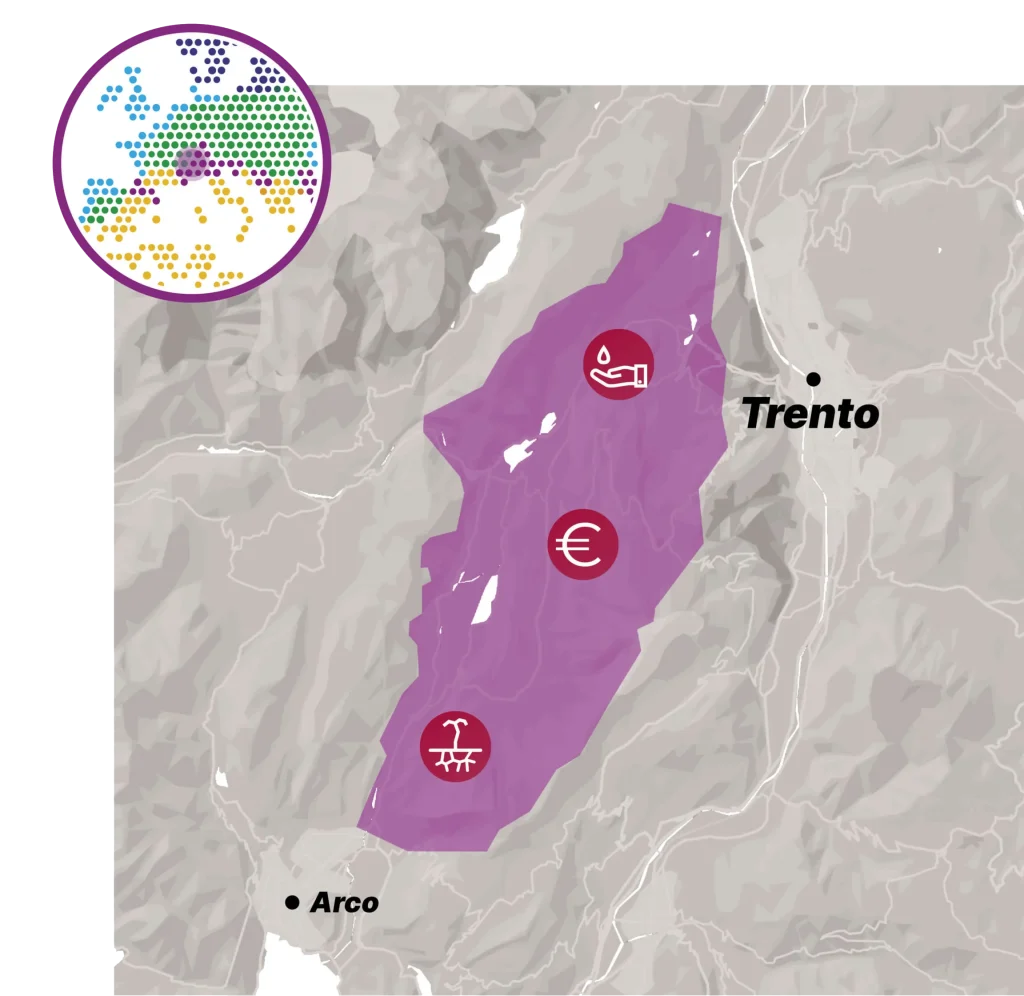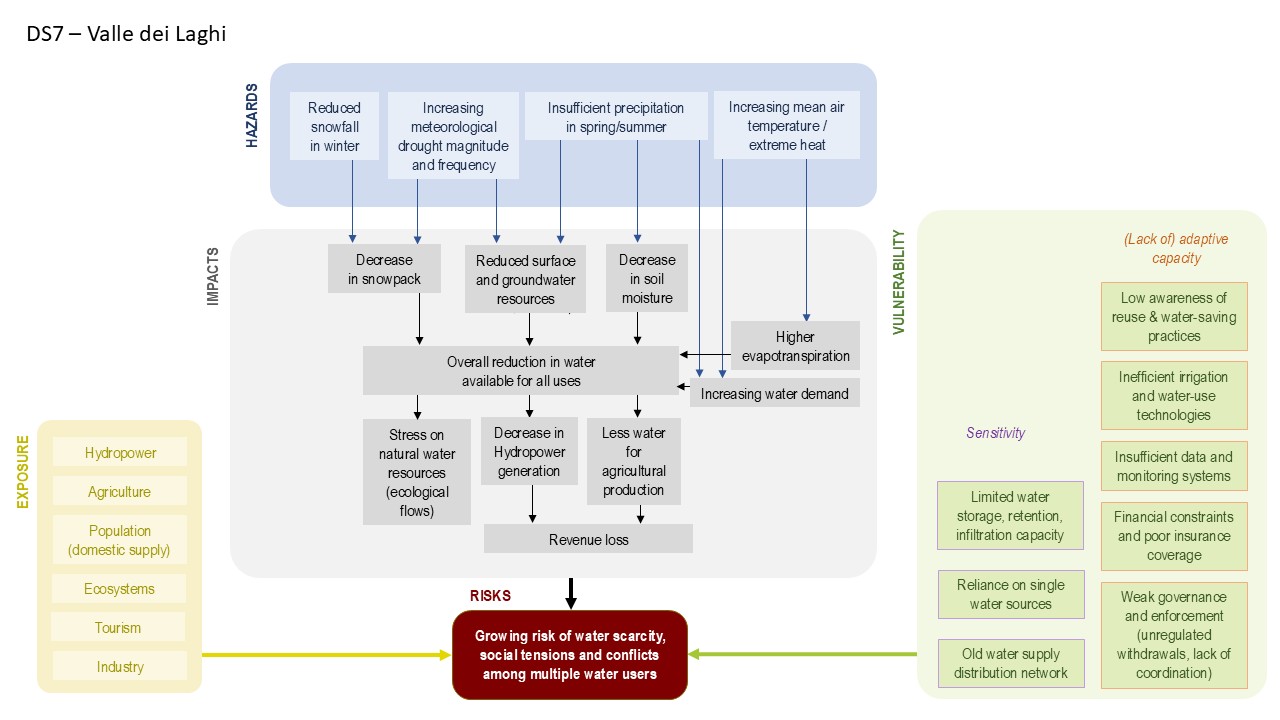The Valle dei Laghi area is located in the Province of Trento in the Italian Alps. The area has an abundant water supply and a very fragmented population, with small villages and municipalities with less than 5000 inhabitants.
Agriculture and food / wine production, hydropower production, forestry for wood fuel, and slow tourism are the main economic activities. The Alps, and mountains in general, are recognised hotspots for climate change, with temperatures raising far beyond the average and more frequent extreme weather events.
Thanks to data and knowledge sharing and co-creation with local actors, local partners are supporting decision-making processes to strengthen the resilience of the territory and the community in the following fields:
- sustainable and integrated management of regional water resource through a Decision Support System;
- analysis of innovative insurance products for agriculture;
- evaluation of the effects of the altitudinal shift of crops on vineyards;
- activating the cultural heritage to enhance climate resilience;
- applying Impact Chains approach to better understand and manage vulnerabilities and risks related to climate change.



